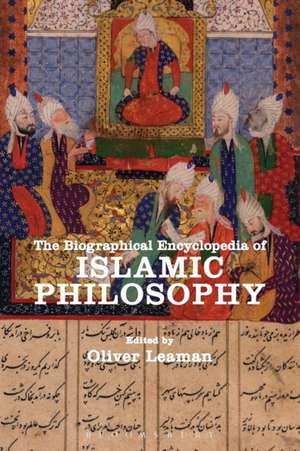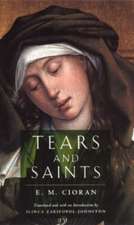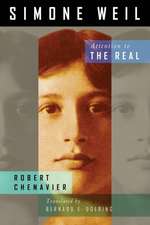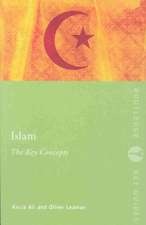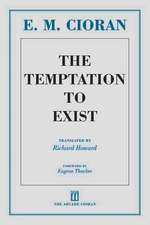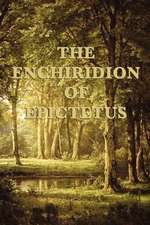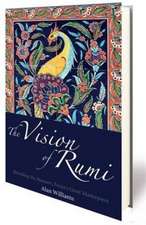The Biographical Encyclopedia of Islamic Philosophy
Editat de Oliver Leamanen Limba Engleză Paperback – 15 iul 2015
Preț: 352.62 lei
Preț vechi: 541.82 lei
-35% Nou
Puncte Express: 529
Preț estimativ în valută:
67.47€ • 70.64$ • 55.83£
67.47€ • 70.64$ • 55.83£
Carte tipărită la comandă
Livrare economică 07-21 aprilie
Preluare comenzi: 021 569.72.76
Specificații
ISBN-13: 9781472569448
ISBN-10: 147256944X
Pagini: 560
Dimensiuni: 156 x 234 x 28 mm
Greutate: 0.86 kg
Editura: Bloomsbury Publishing
Colecția Bloomsbury Academic
Locul publicării:London, United Kingdom
ISBN-10: 147256944X
Pagini: 560
Dimensiuni: 156 x 234 x 28 mm
Greutate: 0.86 kg
Editura: Bloomsbury Publishing
Colecția Bloomsbury Academic
Locul publicării:London, United Kingdom
Caracteristici
Includes end-of-entry bibliographies as well as a general bibliography, timeline and glossary
Notă biografică
Oliver Leaman is Professor of Philosophy at the University of Kentucky, USA. He is the author and editor of books on Islamic philosophy and philosophy in general.
Cuprins
IntroductionHow to use the DictionaryGeneral bibliographyList of contributors List of biographical entries and authors Entries A-ZGlossaryIndex of namesIndex of terms
Recenzii
Winner Outstanding Academic Title Award 2007Offering a broader perspective than its title indicates, this useful encyclopedia extends beyond philosophy to include "all kinds of theoretical enquiry which were regarded in their time as philosophical," including the Islamic sciences, grammar, theology, law, and traditions. Befitting the biographical focus, all the major (and many minor) philosophers, theologians, and mystics (so long as they are not alive) receive illuminating treatment.Additionally, the work includes many useful large conceptual entries, e.g., on meaning, logic, and epistemology, but also on fundamentalism, mysticism, and religion. The wide net is welcome, given the great variety of approaches to wisdom (hikma) in Islamic traditions, from rational philosophy (falsafa) to illuminationist gnosis (ishraq). Potential readers will discover that this work covers not only a great variety of philosophers, but also nonphilosophical Sufi mystics like Abu Sa'id and Rabi'a, and influential mystical poets like Ibn al-Farid. The entry on the great Rumi fills 18 columns, one of the largest. The editor is to be commended for compiling a work that will help to alleviate the pervasive ignorance of Islamic thought and culture in English-speaking countries. Summing Up: Highly recommended.
When most people here in the West think of philosophy, they focus primarily on those thinkers of the western tradition with few exceptions. To help counteract this trend, Oliver Leaman's Biographical Encyclopedia of Islamic Philosophy offers access to Islamic philosophers from all periods as well as the main trends and ideas. To his credit, Leaman acknowledges the role of major philosophical reference works, such as The Encyclopdia of Philosophy and The Encyclopedia of Islam even as he and his colleagues focus on the sub-field in question. The introduction renders a usual overview and a listing of key reference works for every level of scholarly audience. The articles vary in length according to the philosopher's or movement's importance, offering biographical (or as appropriate, historical) details and highlighting the key writings. A work cited list including both primary and secondary works accompanies each. Judiciously included cross-references guide readers to related articles within the set. Islamic connections to other faiths' thought and traditions provides context for the reader in terms of how ideas appear and develop over time.Leaman's work fills an important gap in reference literature. While aimed at an academic audience, the set's clearly crafted essays grant people access to the ideas and people comprising almost 1400 years of Islamic philosophical tradition. This work is recommended for college, university libraries, and religious institutions.
When most people here in the West think of philosophy, they focus primarily on those thinkers of the western tradition with few exceptions. To help counteract this trend, Oliver Leaman's Biographical Encyclopedia of Islamic Philosophy offers access to Islamic philosophers from all periods as well as the main trends and ideas. To his credit, Leaman acknowledges the role of major philosophical reference works, such as The Encyclopdia of Philosophy and The Encyclopedia of Islam even as he and his colleagues focus on the sub-field in question. The introduction renders a usual overview and a listing of key reference works for every level of scholarly audience. The articles vary in length according to the philosopher's or movement's importance, offering biographical (or as appropriate, historical) details and highlighting the key writings. A work cited list including both primary and secondary works accompanies each. Judiciously included cross-references guide readers to related articles within the set. Islamic connections to other faiths' thought and traditions provides context for the reader in terms of how ideas appear and develop over time.Leaman's work fills an important gap in reference literature. While aimed at an academic audience, the set's clearly crafted essays grant people access to the ideas and people comprising almost 1400 years of Islamic philosophical tradition. This work is recommended for college, university libraries, and religious institutions.
